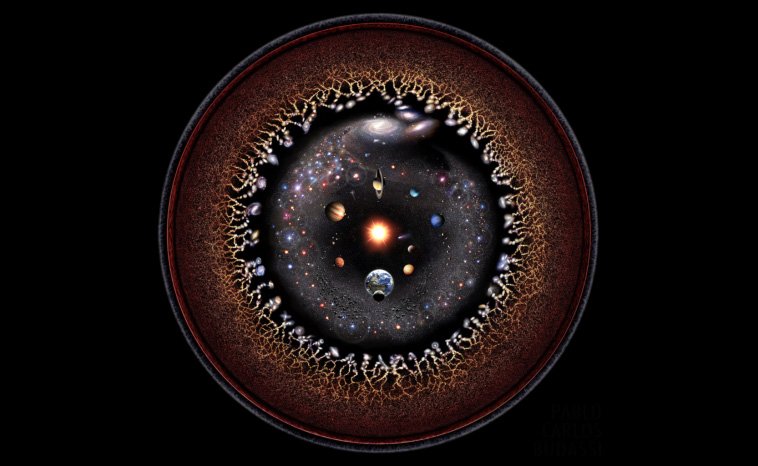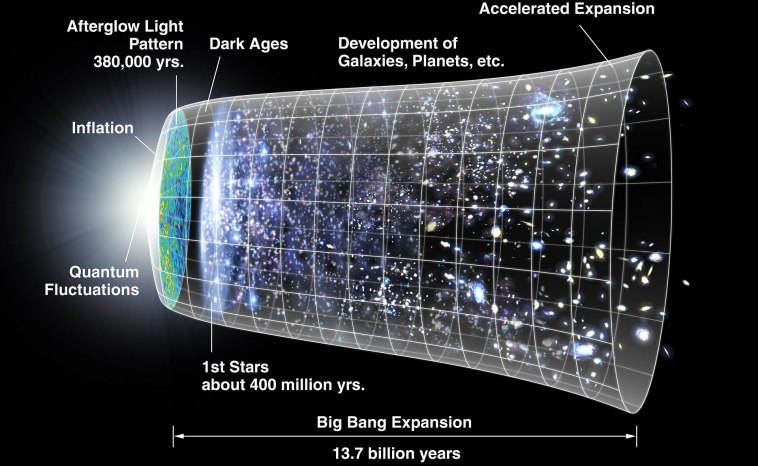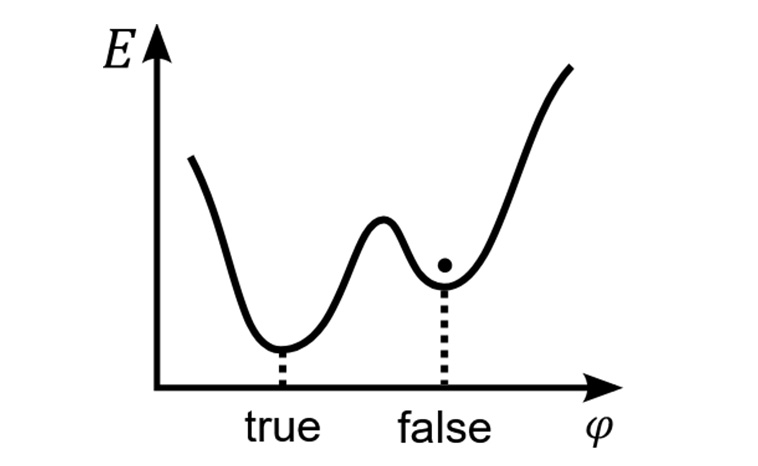How Will the Universe End?

Throughout human history, we have been fascinated by the mysteries of the universe. And one of our most intriguing questions is: how will the universe end? What will happen, and when? In this article, we’ll delve into these questions, explore various theories, and try to understand the factors that could influence the end of everything.
What Is the Universe?
Picture something. Anything. It could be a planet, a star, a whole galaxy, or those cookies you’re trying to forget about in your cupboard. All those things are in the universe. The universe is space, time, and everything that’s contained within. Scientists widely accept that the universe started about 13.8 billion years ago with the Big Bang – when the universe suddenly began to expand rapidly from just a single point of hot, dense particles.
The universe has been expanding ever since, and scientists understand the early stages of the universe quite well. However, the universe’s ultimate fate remains an enigma that has fascinated scientists, philosophers, and the public alike. This mystery has led to the development of several theories, each with its own unique predictions and implications for the future of the cosmos.

Pablo Carlos Budassi, CC BY-SA 4.0, via Wikimedia Commons
Pablo Carlos Budassi, CC BY-SA 4.0, via Wikimedia CommonsUnderstanding the End of the Universe
Before examining the various theories about the end of the universe, it’s essential first to understand the concept itself. The end of the universe is an event or series of circumstances that will ultimately cease all activity within the universe. This may involve the destruction of all matter and energy, the collapse of the universe into a singularity, or a transition to a completely different state.
Several factors may influence how the universe ends, including dark energy, dark matter, cosmic expansion, and the laws of thermodynamics. As we explore the various theories, we will see how these factors come into play and shape the possible outcomes for the universe.
How Will the Universe End?
Scientists and cosmologists have proposed several theories about the end of the universe. Each idea has its own unique predictions and explanations for how the universe might end. Here, we will discuss the four most widely accepted theories:
The Big Crunch
The Big Crunch theory posits that the universe will eventually stop expanding and begin to contract. This would occur should the force of gravity from the combined mass of the universe’s matter overpower the force of cosmic expansion. As the universe contracts, it would become denser and hotter until it reaches a state similar to the conditions during the early stages of the Big Bang. At this point, the universe may collapse into a singularity, ending all activity within the cosmos.
A related theory to the Big Crunch is the Big Bounce. In this notion, the universe still contracts into a singularity as outlined in the Big Crunch. However, following this stage, a new Big Bang would occur, resulting in a new iteration of the universe.
The Big Freeze
Of all the possible outcomes for the universe, the Big Freeze could be the most likely, assuming the universe continues to expand indefinitely. The Big Freeze suggests that as the universe expands, it will gradually cool until it reaches a temperature close to absolute zero – far too cold to sustain life. Furthermore, as the universe expands, matter will move progressively further away from other matter. First, the stars in the night sky will disappear. However, later, gas particles will spread out so much that the formation of new stars will become impossible. When the final stars have died, all that would be left are black holes – and they, too, would eventually evaporate as they emit Hawking radiation.
A related possibility in an infinitely expanding universe is heat death. This theory suggests that, with enough time (as allowed by infinite expansion), the universe would enter a state of maximum entropy. Entropy is essentially a measurement of disorder and indicates how much energy within a given system is unusable. In a universal sense, maximum entropy would mean that all energy in the universe would be evenly distributed, with no available free energy to sustain any processes – such as life.

The Big Rip
The Big Rip theory proposes that the force of cosmic expansion will eventually tear the matter of the universe apart. The gravitational forces holding galaxies, stars, and even atoms together will ultimately be overcome, leading to the complete disintegration of all matter, energy, and spacetime itself. In this scenario, the universe will end in a violent and catastrophic event, leaving a vast void behind.
This theory relies on dark energy, a hypothetical form of energy believed to be responsible for accelerating the universe’s expansion. On the other hand, dark matter is an invisible form of matter that scientists believe to make up about 27% of the universe’s mass. Both dark energy and dark matter play a crucial role in determining the universe’s fate. If dark energy continues to accelerate the expansion of the universe, it could eventually overcome all other forces and lead to the Big Freeze or the Big Rip. However, if dark matter plays a more significant role than currently believed, it could slow down the universe’s expansion and increase the chances of a Big Crunch.
The Vacuum Decay
The vacuum decay theory is a less likely but drastic end to the universe as we know it. The idea involves the Higgs field, a field of energy that scientists think exists in every part of the universe. It is linked to the Higgs boson, the particle that scientists believe gives other particles mass. Crucially, while all other quantum fields are in a true vacuum state, scientists think the Higgs field is in a false vacuum state. This means that the Higgs field is only at a minimal energy state and not at its lowest possible energy state, making it Metastable – that is, stable… until it’s not!
Should the Higgs field ever release all of its potential energy anywhere in the universe, it would create a bubble of true vacuum, expanding at the speed of light through the universe. Inside, the laws of physics as we know them would be thrown out the window. Chemicals could react differently. Atoms might not bond together as we expect. Things may happen that we can’t even comprehend. Whatever the scenario, life, and even matter, almost certainly couldn’t continue, and everything in the bubble’s path would be destroyed.

User:Stannered, CC BY-SA 3.0, via Wikimedia Commons
User:Stannered, CC BY-SA 3.0, via Wikimedia CommonsShould I Worry About Vacuum Decay?
While this sounds like a scary proposition, there’s no need to worry! Firstly, scientists don’t know for sure that the Higgs field is in a false vacuum state. Secondly, supposing a bubble of true vacuum suddenly appeared somewhere, given the size of the universe, it would likely happen so far away that it could never reach us due to the expansion of the universe. Additionally, for vacuum decay to occur, the Higgs field must first shed its false vacuum state. Given we’re talking about a universal timeframe, the likelihood of that happening in the lifespan of our civilisation is vanishingly tiny.
When Will the Universe End?
Determining when the universe will end is difficult, as it depends on various factors and uncertainties. However, scientists have made several estimations and predictions based on current observations and models of the universe.
According to current estimations, the universe is about 13.8 billion years old, and the earliest stars and galaxies formed about 400 million years after the Big Bang. Scientists expect stars to form for up to around 100 trillion years. After this, the remaining stars will burn out, and the universe will enter the Degenerate Era, where only white dwarfs, neutron stars, and black holes will exist.
Beyond this time frame, the fate of the universe is uncertain. Depending on the relative strengths of dark energy and dark matter, the universe could continue to expand indefinitely (Big Freeze or Big Rip) or eventually collapse in on itself (Big Crunch). However, these events are estimated to occur on almost unimaginably long timescales, making them difficult to predict accurately.
How Will the End of the Universe Affect Humanity?
The end of the universe is a fascinating topic, but it also raises questions about how it will affect humanity. Since the end of the universe is expected to occur on time scales far beyond the lifespan of any individual or even civilisation, it is unlikely to impact us directly. However, the knowledge that the universe is ultimately finite and will come to an end raises philosophical and existential questions about our place in the cosmos. If the universe will eventually end in a cold, dark, and lifeless state, what is the ultimate purpose of life? Is there potential for intelligent life to survive beyond the universe’s lifespan? These are good questions to ponder the next time you’re gazing at the stars on a clear night!
What Can We Learn from the End of the Universe Theories?
While the end of the universe is ultimately unknown, the various theories about its fate provide valuable insights into the nature of the cosmos and the factors that influence its evolution. By studying these theories, we can better understand the universe’s history, present state, and potential future.
The theories about the end of the universe also highlight the importance of scientific research and space exploration. By studying the cosmos and the forces that shape its fate, we can better understand the universe’s ultimate destiny and our place within it. This knowledge can also inform our decisions about long-term space exploration and the search for life beyond Earth.
Embracing the Mystery of the End of the Universe
The end of the universe is a fascinating and mysterious topic that has captured the imagination of humans for centuries. While the universe’s ultimate fate remains unknown, the various theories about its end provide valuable insights into the factors influencing the cosmos’ evolution. By studying these theories and the scientific evidence supporting them, we can better understand the universe’s history, present state, and potential future.
While the stars won’t be around forever, thankfully, there’s plenty around for us to enjoy right now! With the OSR’s Online Star Gift, alongside your star registration, you’ll also receive a personalised digital star certificate, a customisable star page, and the OSR Constellation Factsheet. You’ll also be able to find your star using the OSR Star Finder App!

